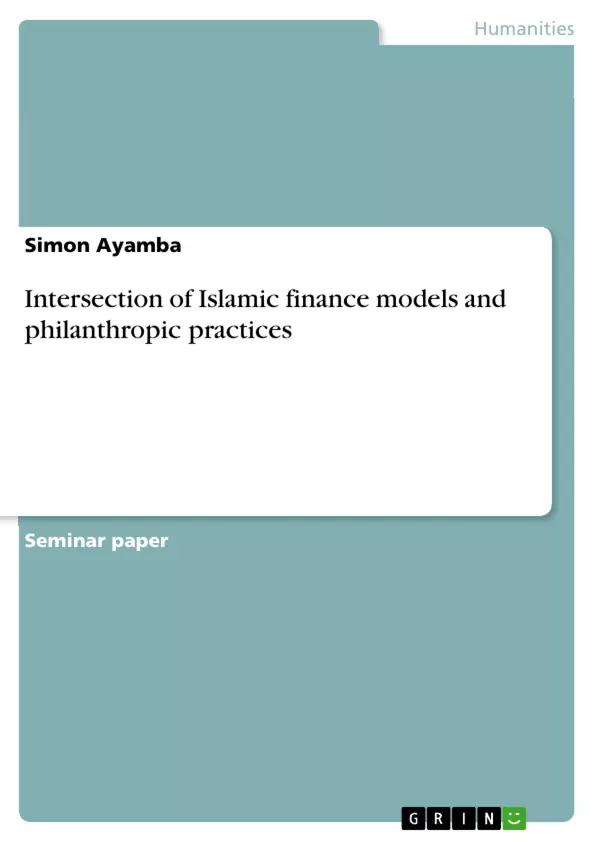This paper explores the intersection of Islamic finance models and philanthropic practices, highlighting their complementary roles in promoting sustainable and socially responsible economic development.
It delves into the core principles and frameworks underlying Islamic finance, such as risk-sharing, asset-backing, and the avoidance of interest-based transactions. The article then examines how these principles can be leveraged to design innovative financial instruments and structures that support and amplify philanthropic efforts, including endowments (waqf), zakat, and other charitable giving mechanisms.
The discussion analyses the potential of Islamic finance models to enhance the reach, effectiveness and long-term impact of philanthropic initiatives, particularly in addressing pressing social and environmental challenges. The paper concludes by outlining future research directions and practical implications for integrating Islamic finance and philanthropy to foster more equitable, inclusive, and sustainable economic systems.
Inhaltsverzeichnis (Table of Contents)
- Abstract
- Introduction (including gaps in the body of knowledge)
- About the theories (including criticisms or drawbacks)
- Review of empirical literature (studies on the application of the theories)
- Conclusions and recommendations
- References
Zielsetzung und Themenschwerpunkte (Objectives and Key Themes)
This article explores how three key economic and financial theories - rational choice theory, expected utility theory, and rational expectations theory - can be used together to explain political participation. It aims to provide a comprehensive understanding of how these theories, despite their limitations when used in isolation, can offer valuable insights into political decision-making.
- Application of economic theories to political participation
- Understanding motivations behind political decisions
- Criticisms and limitations of rational choice frameworks
- Empirical evidence on the application of these theories
- Interdisciplinary approach blending economics, psychology, and political science
Zusammenfassung der Kapitel (Chapter Summaries)
- Abstract: This chapter provides a brief overview of the article's focus on applying three key economic theories to explain political participation, highlighting their complementary insights and limitations.
- Introduction: This chapter introduces the topic of political participation and its importance in democratic governance. It discusses the longstanding debate surrounding the factors that motivate citizens to participate, highlighting the strengths and weaknesses of economic theories in explaining political behavior.
- Rational Choice Theory: This chapter provides a detailed explanation of rational choice theory, its assumptions, and its application to political decision-making. It discusses the theory's parsimony and its ability to model complex social phenomena, while also acknowledging its limitations.
- Expected Utility Theory: This chapter examines expected utility theory, its relevance to decision-making under uncertainty, and its applications to political phenomena. It highlights the theory's potential to explain various political behaviors and its role in guiding empirical research.
Schlüsselwörter (Keywords)
This article focuses on rational choice theory, expected utility theory, rational expectations theory, political participation, voting behavior, political decision-making, empirical research, interdisciplinary approaches, economic theories, and political science.
- Citar trabajo
- Simon Ayamba (Autor), 2024, Intersection of Islamic finance models and philanthropic practices, Múnich, GRIN Verlag, https://www.grin.com/document/1471196



